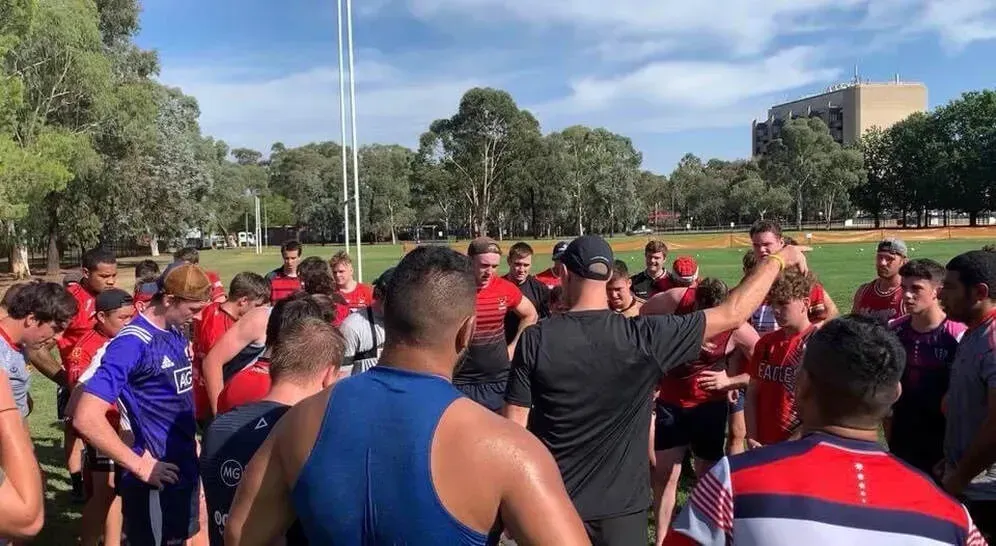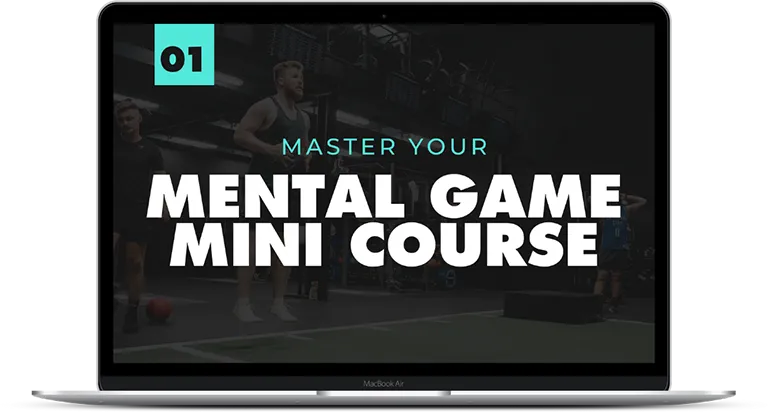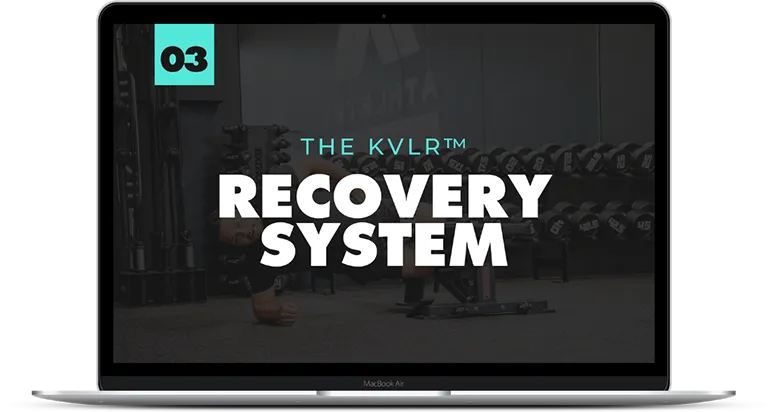Athletes Authority
Latest Blog & Insights

Mental Toughness Training For Athletes: How To Boost Your Performance Using Sports Psychology
Find Out Why Mental Toughness Training Could Be The Key To Unlocking A New Level Of Athleticism
As an athlete, you know that mental toughness is an essential component of success. It’s the ability to stay focused, motivated, and composed under pressure, and it can make all the difference in your performance. That’s where mental toughness training comes in.
What is Mental Toughness Training?
But what exactly is mental toughness training? In a nutshell, it’s a way to develop and improve the mental skills and abilities that are crucial for top athletic performance. This can include techniques like visualization, goal setting, relaxation, and self-talk, as well as more specific skills like focus and concentration (Jones, 2018).
Mental toughness training can be tailored to meet the specific needs and goals of each athlete, but there are some common elements that are often included. For example:
Visualization:
Creating a mental image of your desired outcome and visualizing the steps needed to achieve it can be especially helpful for preparing for a big competition or game (Weinberg & Gould, 2011).
Goal setting:
Setting specific, measurable, achievable, relevant, and time-bound (SMART) goals can help you stay focused and motivated (Dankwa, 2017).
Relaxation techniques:
Deep breathing, progressive muscle relaxation, and mindfulness are just a few examples of relaxation techniques that can help you manage stress and stay calm under pressure (Smith, 2018).
Self-talk:
The way you talk to yourself can have a huge impact on your confidence and motivation (Horn, 2016). Mental toughness training can help you develop positive self-talk habits.
Why is Mental Toughness Training Important for Athletes?
So, why is mental toughness training important for athletes? There are many benefits to be gained from this type of training. For one thing, it can help you perform at your best when it matters most.
This includes staying focused and composed under pressure, managing stress and anxiety, and maintaining motivation and confidence (Jones, 2018). Mental toughness training can also help you bounce back from setbacks and persevere through challenges, leading to greater mental resilience (Smith, 2018). And by maintaining a consistent level of performance from game to game and season to season, mental toughness training can help you become a more consistent athlete (Dankwa, 2017).
Plus, it can help you develop the mental skills and abilities necessary to be a leader on and off the field (Horn, 2016).
How to Start a Mental Toughness Training Program
If you’re an athlete looking to improve your mental toughness, here’s what you can do:
Identify your goals: What do you want to achieve through mental toughness training? Do you want to perform better under pressure? Stay motivated and focused during long training sessions? Be a better leader on and off the field? Identifying your goals will help you tailor your mental toughness training program to your specific needs.
Find a mental toughness coach or program: There are many coaches and programs out there that specialize in mental toughness training for athletes, like us. Find out more about our mental skills training program here.
Practice regularly: Mental toughness training is like any other type of training – it requires regular practice to be effective. Make sure to carve out time in your schedule to work on your mental toughness skills.
Get started with our free mental skills mini-course: We’ve put together a completely free mini-course to help you get started on your mental skills training journey. Download it for free, here.
Examples of Mental Toughness In Action
During the most high-pressure moments in sport, the athletes with the strongest mental skills tend to shine. Michael Phelps is a great example of this. In one of his gold medal races, water flooded his goggles as he dived in to start the race. But, because he’d spent dozens of hours visualising what he’d need to do to win, he was able to complete the race with his eyes closed. He knew exactly how many strokes per lap, when he had to turn, and how close his competition would be. You can find out more about Michael Phelps visualisation strategies here
The Relationship Between Mental Toughness & Physical Training
Physical and mental training often go hand in hand. Physical training can help improve an athlete’s physical abilities, while mental toughness training can help improve their mental skills and abilities. Interestingly though – mental training is often completely neglected by amateur and semi-professional athletes, despite being critically important to success.
For example, an athlete who is physically fit may have an easier time maintaining focus and motivation during training or competition. Similarly, athletes who have developed mental toughness skills may find it easier to push through physical challenges and setbacks.
The Relationship Between Mental Toughness & Physical Training
Different mental toughness training techniques may be more or less effective for different goals. For example, an athlete looking to improve their focus and concentration may benefit from techniques like meditation or visualisation. On the other hand, an athlete who is looking to boost their motivation may benefit from techniques like goal setting or positive self-talk. Understanding the specific goals of an athlete can help guide the selection of mental toughness training techniques.
Conclusion
Mental toughness training is essential to any athlete’s training regimen. You can boost your performance and reach your full potential as an athlete by developing and improving your mental skills and abilities. Whether you’re looking to perform better under pressure, stay motivated and focused during long training sessions, or become a leader on and off the field, mental toughness training can help you get there.
Want to find out more about how we can help you develop mental toughness? Check out our Mental Skills Training program here.
Got a question relating to mental toughness? We’ve compiled a list of common questions below in an FAQ — we might be able to answer it there.
What is mental toughness training?
Mental toughness training is a way to develop and improve the mental skills and abilities that are crucial for top athletic performance. This can include techniques like visualization, goal setting, relaxation, and self-talk, as well as more specific skills like focus and concentration.
Why is mental toughness training important for athletes?
Mental toughness training can have numerous benefits for athletes, including improved performance, enhanced mental resilience, greater consistency, and enhanced leadership. It can help athletes stay focused and composed under pressure, manage stress and anxiety, maintain motivation and confidence, bounce back from setbacks, and develop the mental skills and abilities necessary to be a leader.
How do I start a mental toughness training program?
To start a mental toughness training program, follow these steps: 1) Identify your goals; 2) Find a mental toughness coach or program; 3) Practice regularly; and 4) Be consistent.
What are some examples of mental toughness training techniques?
Some examples of mental toughness training techniques include visualization, goal setting, relaxation techniques, and self-talk.
References
Dankwa, P. (2017). The relationship between goal setting and mental toughness in high-level soccer players. Journal of Sports Science and Medicine, 16(3), 365-369.
Horn, T. (2016). The role of mental toughness in leadership. Journal of Business and Leadership, 7(2), 29-46.
Jones, G. (2018). Mental toughness for peak performance. London, UK: Kogan Page.
Smith, J. (2018). The relationship between mental toughness and stress management in college athletes. Journal of Sports Science and Medicine, 17(4), 626-631.
Weinberg, R., & Gould, D. (2011). Foundations of sport and exercise psychology. Champaign, IL: Human Kinetics.
Want to stop choking in the moments that count the most? Discover how to optimise your thinking to compete like a champion. Click here to learn more.
Our resources

Master your mental game Mini Course
Discover the mindset strategies of the World’s Greatest Athletes so you can turn your mind into a weapon of performance.

THE ATHLETES AUTHORITY RECOVERY SYSTEM
Performance = fitness – fatigue. Reduce your fatigue and recover faster with our 3-step recovery system.
MELBOURNE LOCATION
SYDNEY LOCATION
© 2023, Athletes Authority | All Rights Reserved
Website & Marketing Powered By Gymini

